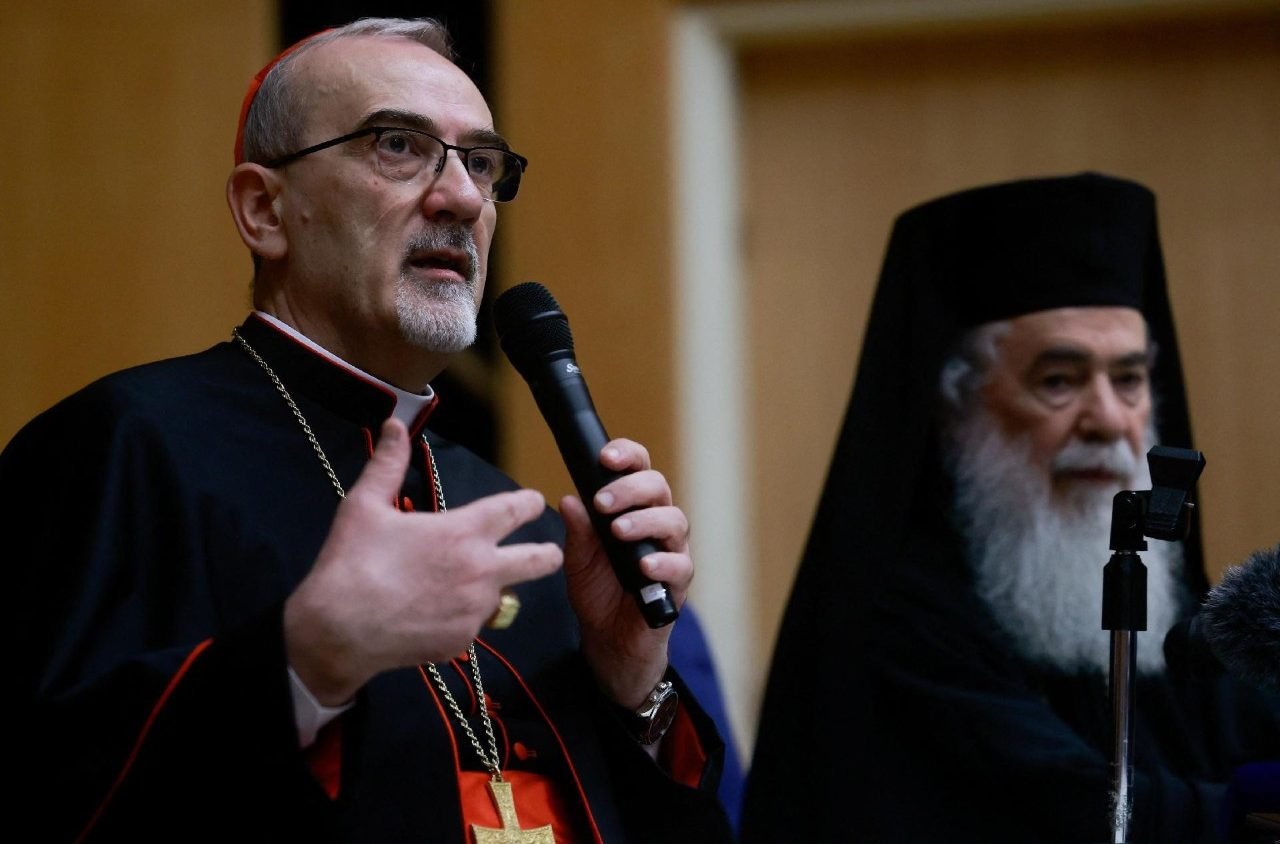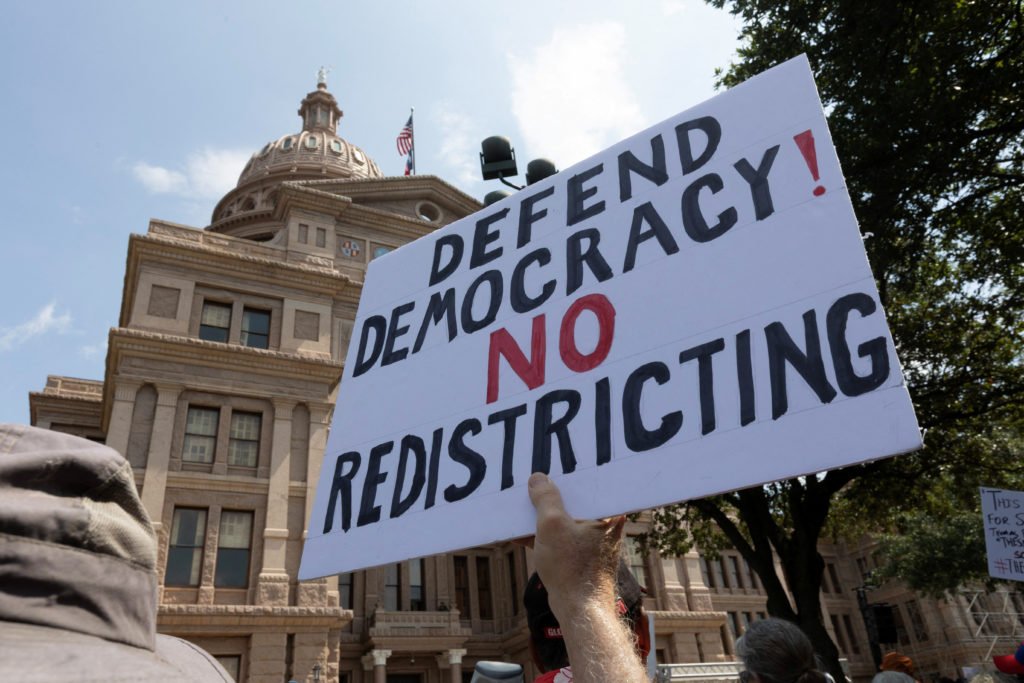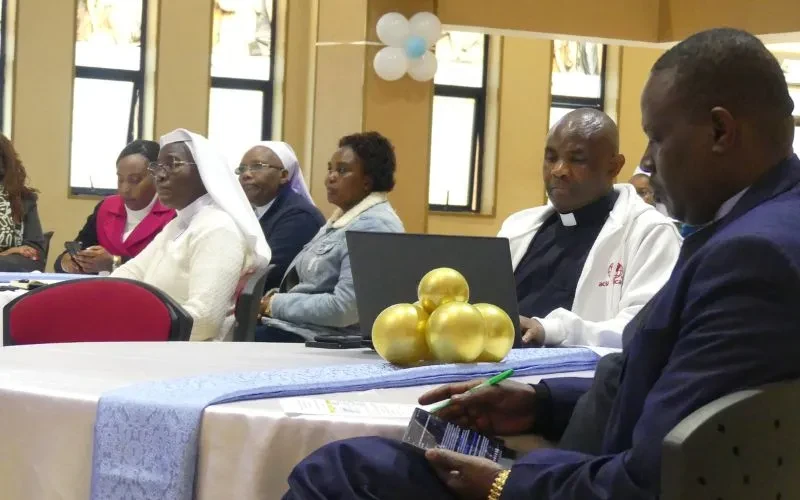
Ahead of the Day of Prayer and Fasting for Peace on August 22, called by Pope Leo XIV, the Latin Patriarch of Jerusalem highlights the power of prayer to open people to trust and seek to do good, even in the Holy Land, where finding common ground is nearly impossible.
By Francesca Sabatinelli
Cardinal Pierbattista Pizzaballa, the Latin Patriarch of Jerusalem, has expressed gratitude for Pope Leo XIV’s constant attention and hope that people’s hearts may change.
On the eve of the Day of Prayer and Fasting for Peace called by the Pope for August 22, the feast of Our Lady, Queen of Heaven.
On Wednesday, the Pope invited the faithful around the world to implore the Lord to “grant peace and justice” to those who suffer because of armed conflicts, focusing especially on the Holy Land and Ukraine.
Pray, fast, and turn to God
“We are grateful for this attention to the theme of peace, which the Pope has returned to very often, almost always,” Patriarch Pizzaballa told Vatican News. “It is a very delicate theme, one felt very deeply by us. It is not the first time that we have committed ourselves to days of prayer and fasting; they have been done in the past as well, and it is the only thing that at this moment we can do: to pray and to fast, to keep our attention directed toward God. It is the only thing we can do right now so that the hearts of men may change.”
Prayer is not a magic formula
Prayer, however, warned the Cardinal, should not be relied upon as if it were “a magic formula that solves problems.”
Prayer serves to change hearts, he said, adding that approaching prayer in such a way would end up creating “only frustration.”
Rather, he explained, prayer serves to open hearts in a context of hatred and rejection of the other, as has occurred with war and the absence of peace.
“Instead, the heart must always remain open to trust, to the desire to do good, to build good,” said Patriarch Pizzaballa. “And this is the strength of prayer, especially in the Holy Land, where recognizing the other is almost impossible at this moment.”
Heart of man can change
Prayer and fasting will therefore give strength to those who live in a place devastated by death and violence, where the word peace seems to find no common ground.
“It finds no ground in the institutions,” the Patriarch continued. “It finds no ground in the great organizations, whether political or—alas—also religious, but it does find ground among many people, movements, groups, associations, and individuals who do not accept this downward spiral. Prayer also serves to create this bond with people of all faiths who, despite everything, still want to believe that the heart of man, even in the Holy Land, can change.”
Strength of prayer
Friday’s day of prayer, he said, will confirm that “Christ is not absent from Gaza,” as the Latin Patriarch of Jerusalem said during the press conference with the Orthodox Patriarch of Jerusalem, Theophilos III, on July 22, upon returning from his visit to the Christian community of Gaza after the bombing of the Catholic church of the Holy Family.
“Knowing the community,” he explained, “I can say that their strength comes precisely from prayer, from the strength to resist in the midst of that terrible situation. We are on the eve of we do not know what—we do not know what will happen with this occupation that has begun, what will happen to us, to our neighbors, to everyone. But their strength to resist, to try to help everyone despite everything, to bring food, to distribute medicine—this strength comes precisely from prayer and from their being together, which only prayer can give.”
On Friday, the faithful of the Holy Land will pray for themselves and for their neighbors, so that peace may prevail, so that the constant anxiety may end.
“The information we are receiving from the territory is confused,” concluded Patriarch Pizzaballa. “There has been no direct order of evacuation, but the fighting is drawing ever closer to our area, the areas adjacent to ours have been evacuated, so here we are, waiting to understand what to do.”




